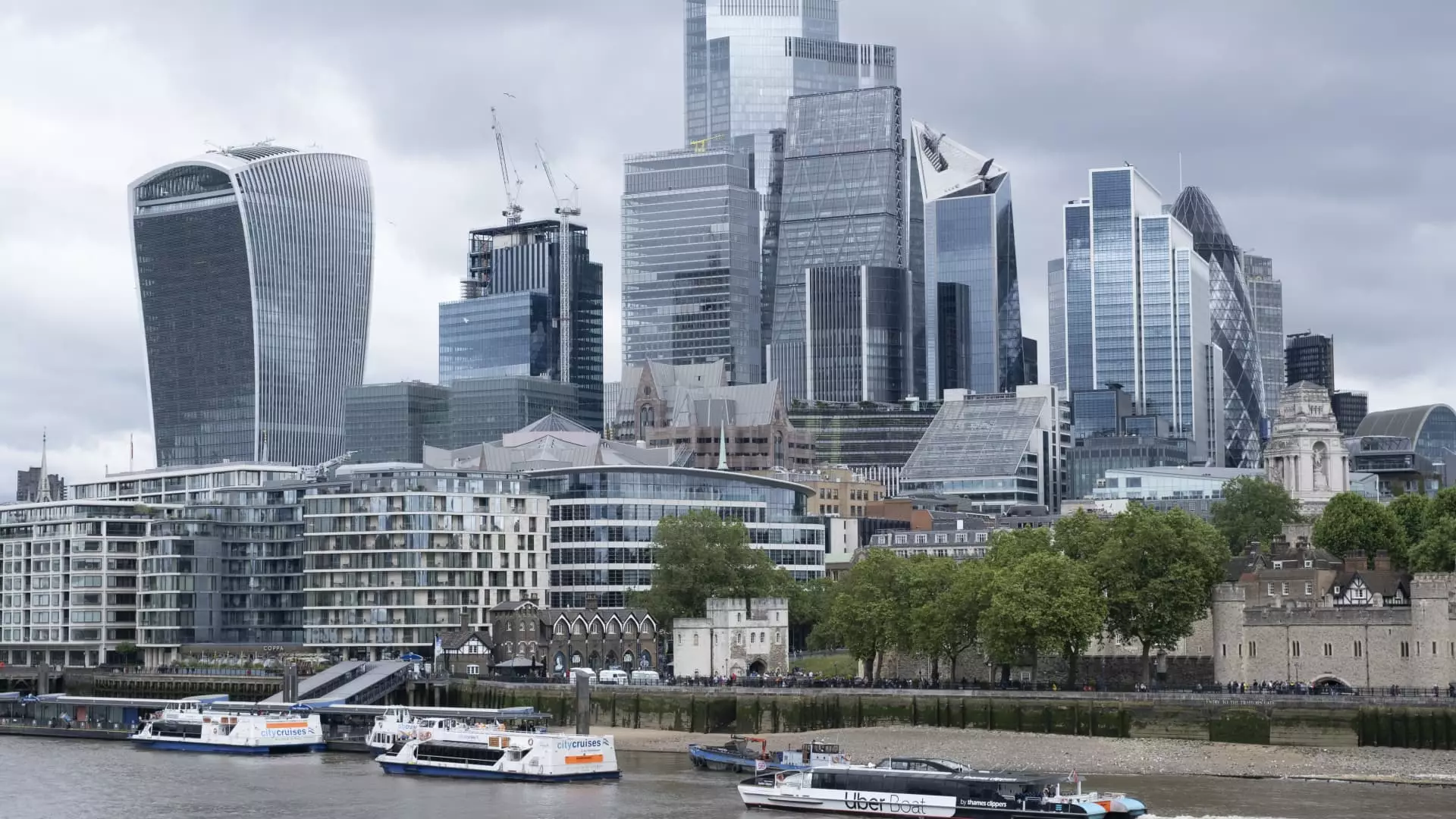The International Monetary Fund (IMF) has recently adjusted its growth forecast for the United Kingdom, highlighting a more optimistic trajectory as it anticipates a rebound driven by easing interest and inflation rates. The IMF now predicts a growth rate of 1.1% for the UK economy in 2024, a substantial upgrade from its earlier estimate of 0.7% made in July. This new forecast not only reflects a growing sense of economic resilience in the country but also reinforces the idea that the impact of previous economic hardships may be subsiding. With an accompanying forecast of 1.5% growth for 2025, the IMF seems to be projecting a more stable period for the UK economy following a tumultuous couple of years.
A critical element behind this bullish outlook is the significant drop in inflation rates, which plummeted to 1.7% in September from a staggering 11.1% in October 2022. Such a decline is expected to enhance domestic demand, encouraging consumer spending and investments. The anticipated cuts to interest rates—predicted to fall from 5.25% to around 4.5% by the end of 2024—are also likely to stimulate economic activity. This interplay between lower inflation and interest rates could create a conducive environment for recovery, particularly as consumers and businesses regain confidence in a more stable economic landscape.
Despite these positive developments, the UK’s economic future remains closely intertwined with its political dynamics. As the Labour Party prepares to present its first budget in 14 years, led by Prime Minister Keir Starmer, the implications of fiscal policy will loom large. Starmer has warned of “tough” decisions in light of a purported £22 billion financing shortfall, a claim that has sparked debate among other political factions. Although Starmer has refrained from proposing increases in major taxes, the possibility of a more comprehensive tax hike package is on the table. This impending policy direction introduces uncertainty that could hamper consumer confidence and spending in the short term.
Despite the looming budgetary uncertainties, recent data indicates that consumer sentiment is beginning to shift. The S&P Global UK Consumer Sentiment Index reported a slight uptick in household optimism regarding financial conditions. Many consumers seem more willing to engage in significant purchases, suggesting a cautious yet improving outlook. This resilience among households is crucial as it signals a readiness to participate in economic growth, notwithstanding the challenges presented by political and economic uncertainties.
Comparative Economic Projections: The Wider Context
Interestingly, the IMF’s revised forecasts are not limited to the UK. The organization has also downgraded its growth outlook for the eurozone—expecting a mere 0.8% expansion due largely to stagnation in Germany, the region’s largest economy. Concerns over competitiveness in manufacturing, escalating energy prices, and broader macroeconomic uncertainties have led to this grim outlook for Germany. Meanwhile, other advanced economies are expected to experience a range of growth rates, with the U.S. projected to grow by 2.8%, Canada by 1.3%, and Japan facing a mere 0.3% expansion.
The IMF’s upward revision of the UK’s economic growth forecast serves as a beacon of hope for a nation that has been navigating a tumultuous economic landscape. With declining inflation and interest rates likely bolstering consumer spending, there is potential for a solid recovery. Yet, the forthcoming budget, along with the resulting political dynamics, will play a critical role in shaping the economic environment. If the government can maintain a balance between fiscal responsibility and stimulating growth, the UK may find itself on a path toward sustained economic improvement that aligns with Labour’s ambition of securing the highest growth rates among G7 nations.


Leave a Reply